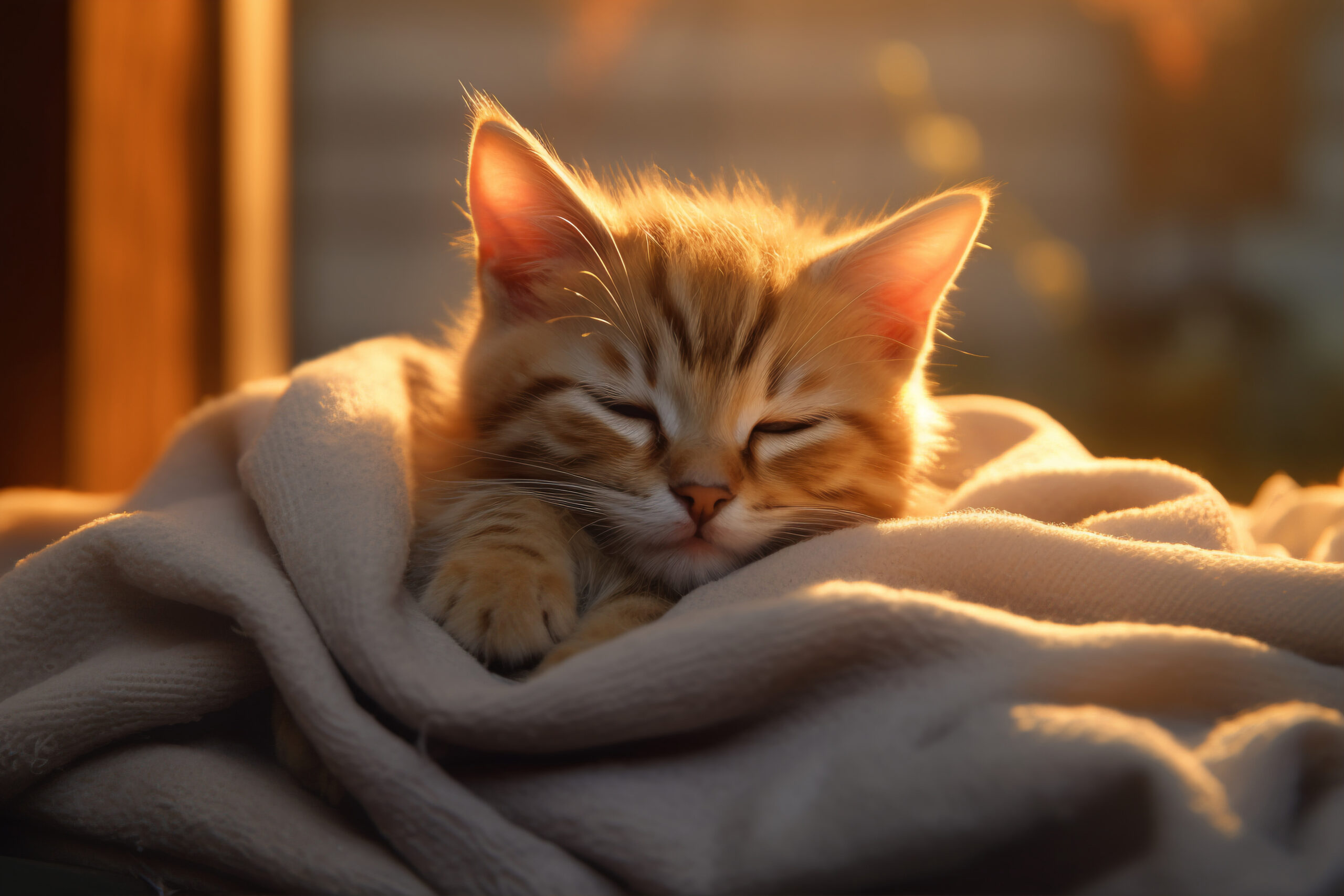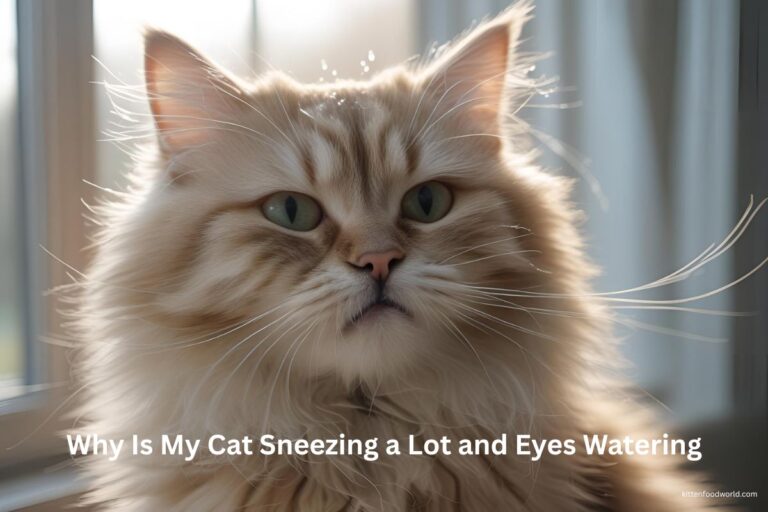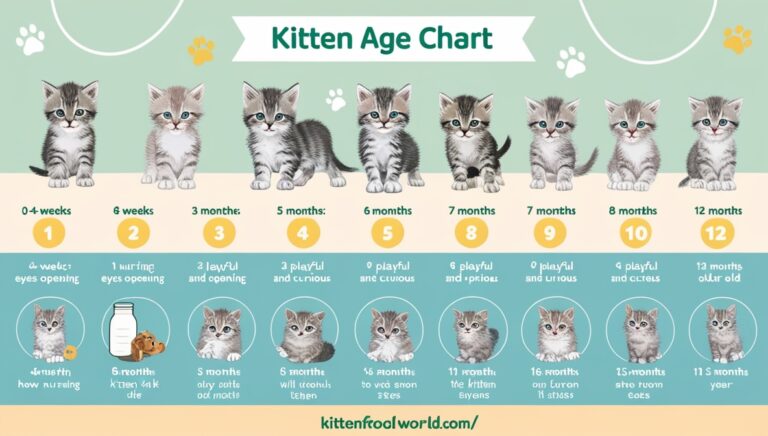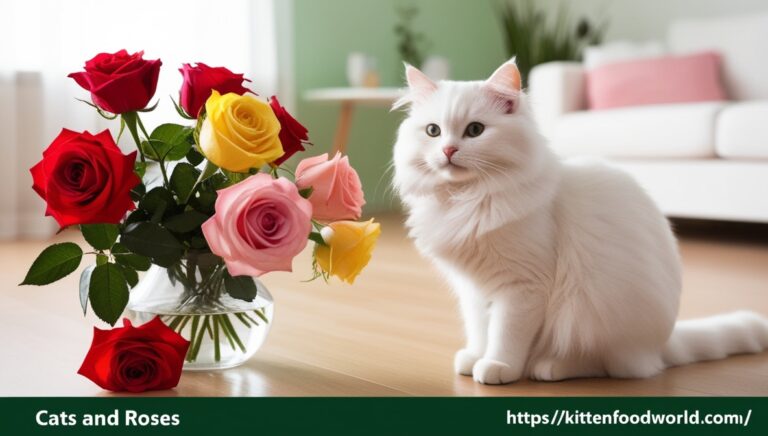My Kitten Won’t Eat and Is Very Sleepy
Introduction
If your kitten won’t eat and is very sleepy, it can be concerning for any pet owner. These symptoms may indicate underlying health issues that need to be addressed promptly.
In this article, we’ll explore potential causes, what you can do at home, and when it’s time to seek veterinary care. Understanding these signs is crucial to ensuring your kitten’s well-being.
Common Reasons Why Your Kitten Won’t Eat and Is Very Sleepy
1. Stress and Anxiety in Kitten
Kittens are sensitive creatures, and changes in their environment can lead to stress, causing them to lose their appetite and become lethargic. Factors like a new home, new pets, or loud noises can make a kitten anxious. According to International Cat Care, reducing stressors and providing a calm environment can help improve your kitten’s appetite and energy levels.
2. Illness or Infection in Kitten
One of the most common reasons a kitten won’t eat and is very sleepy is illness. Conditions such as upper respiratory infections (URIs), gastrointestinal issues, or more serious diseases like feline leukemia virus (FeLV) can manifest with these symptoms.
The Cornell Feline Health Center highlights that a loss of appetite combined with lethargy is often an early sign of illness in cats.
3. Parasites in Kitten
Internal parasites like worms can cause a kitten to feel weak and disinterested in food. Symptoms often include a bloated belly, vomiting, and diarrhea. Regular deworming, as recommended by PetMD, is essential for keeping your kitten healthy.
4. Dehydration in Kitten
Dehydration can quickly become a serious issue for kittens, leading to both lethargy and a lack of appetite. This condition is often caused by inadequate water intake or underlying illness.
To check if your kitten is dehydrated, gently pinch the skin between its shoulder blades; if the skin doesn’t snap back quickly, it may be dehydrated. ASPCA emphasizes the importance of immediate hydration to prevent further complications.
5. Nutritional Deficiencies in Kitten
If your kitten isn’t receiving the proper nutrients, it can lead to both lethargy and loss of appetite. Feeding your kitten a balanced diet formulated specifically for kittens is crucial.
A diet lacking essential vitamins and minerals, like taurine, can lead to serious health issues, according to VCA Hospitals.
How to Encourage Your Kitten to Eat
1. Warm Up the Food
Sometimes, warming your kitten’s food can make it more appealing. Warming enhances the aroma, which can stimulate a kitten’s appetite. According to The Kitten Lady, offering wet food warmed to body temperature often entices kittens to eat.
2. Offer Different Food Options
Your kitten may simply be picky. Experiment with different types of food, such as wet vs. dry food or varying flavors, to find something it likes. A study from WALTHAM™ Petcare Science Institute found that kittens often prefer foods with a higher protein content.
3. Hand-Feeding
In some cases, hand-feeding your kitten small portions can encourage it to eat. This method also helps in bonding and reduces stress. The American Association of Feline Practitioners (AAFP) suggests gently offering food on your finger to stimulate your kitten’s appetite.
When to See a Veterinarian
1. Persistent Symptoms
If your kitten has refused to eat for more than 24 hours and is very sleepy, it’s time to consult a veterinarian. Persistent lethargy and anorexia can be signs of serious underlying conditions, and early intervention is critical. Blue Cross advises that prolonged symptoms should not be ignored.
2. Additional Symptoms
Look for other signs like vomiting, diarrhea, or difficulty breathing. If these symptoms accompany loss of appetite and lethargy, seek veterinary care immediately. According to PetMD, these could indicate severe health issues that require prompt treatment.
3. Suspected Poisoning
If you suspect your kitten may have ingested something toxic, such as plants, chemicals, or human foods that are harmful to cats, seek emergency veterinary care. The American Veterinary Medical Association (AVMA) provides a list of common household toxins to avoid.
Preventative Measures
1. Regular Vet Check-ups
Routine veterinary visits are essential for catching potential health issues before they become severe. Regular check-ups include vaccinations, deworming, and assessments of your kitten’s overall health. The ASPCA recommends starting veterinary care as early as eight weeks old.
2. Maintain a Stress-Free Environment
Keeping your kitten’s environment calm and stable can prevent stress-related issues. Providing a quiet space with familiar toys and bedding can help reduce anxiety. International Cat Care advises creating a consistent daily routine to help kittens feel secure.
3. Proper Nutrition
Feeding your kitten a high-quality diet tailored to its specific needs is one of the best ways to prevent lethargy and appetite loss. Ensure that the food you choose meets the AAFCO nutritional guidelines for kittens to support healthy growth and development.
Related Articles on Kitten Food World
For more information on related topics, you can visit Kitten Food World. Check out articles like New Kitten Information to learn more about properly caring for your kitten.
Conclusion
If your kitten won’t eat and is very sleepy, it’s essential to take these symptoms seriously. Whether due to stress, illness, or other factors, addressing the underlying cause is crucial to ensuring your kitten’s health and well-being. Use the guidance in this article to determine the best course of action, and don’t hesitate to seek veterinary care when needed.







